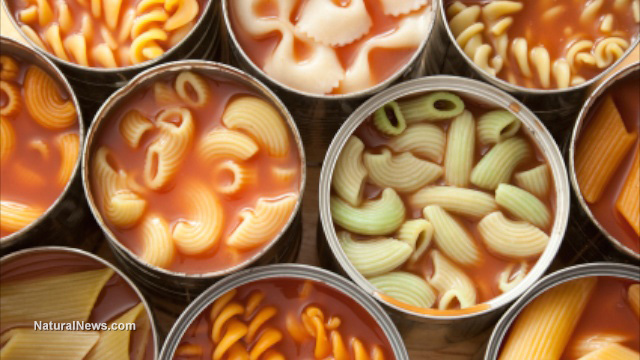High glycemic foods magnify your risk of lung cancer, even if you don’t smoke
07/24/2019 / By Evangelyn Rodriguez

Consumption of red meat, foods with saturated fats, and dairy products has long been associated with an increased risk of cancer. However, a recent study conducted by researchers from The University of Texas MD Anderson Cancer Center adds another type of food to the list. According to this study, foods with a high glycemic index (GI) can also increase the risk of lung cancer. And what’s more concerning is that the study found a greater association between consumption of high-GI foods and lung cancer risk among people who even never smoke.
High-GI foods and why you should avoid them
Foods with high GI are the most common foods included in major meals. Some examples of these are white bread, bagels, white rice, pasta, bran flakes, and instant oatmeal. Diabetics are often the ones who use GI for meal planning as GI is the measure of how quickly a carbohydrate-containing food raises blood glucose levels. But now, several research give healthy people a reason to consider GI as well. (Related: Keep glycemic index of foods low to bolster cardiovascular health, says study.)
The type and amount of dietary carbohydrate influence glucose and insulin responses. Previous studies show that both of these play important roles in the development of cancer and in promoting tumor growth. When people eat foods with high GI, their blood glucose levels go up, triggering the secretion of insulin. Insulin receptors activate mitogenic signaling pathways, and according to researchers, this could mean that chronically elevated insulin levels can influence the risk of cancer through indirect effects on insulin-like growth factors (IGFs). IGFs are involved in the regulation of cancer cell proliferation and differentiation. Additionally, IGFs are elevated in lung cancer patients.

“Diets high in glycemic index result in higher levels of blood glucose and insulin, which promote perturbations in the insulin-like growth factors,” explained Stephanie Melkonian, lead author of the present study.
“Previous research suggests increased levels of IGFs are associated with increased lung cancer risk. However, the association between glycemic index and lung cancer risk was unclear.”
Eating high-GI foods increases the risk of lung cancer, especially in non-smokers
In their study published in the journal Cancer Epidemiology, Biomarkers and Prevention, Melkonian and her colleagues sought to determine the link between GI and lung cancer risk. To do this, they recruited 1,905 patients newly diagnosed with lung cancer and 2,413 healthy people and assessed their dietary GI and glycemic load (GL). All of the participants were non-Hispanic whites. The researchers gathered data about their dietary habits, health history, and physical activity using questionnaires. The researchers also considered their socioeconomic status (education) and smoking habits. The participants were classified as never smokers, former smokers, and current smokers.
The study revealed that there was a significant association between GI and lung cancer risk. In fact, researchers found a 49 percent increased risk of lung cancer among participants who consumed large amounts of high-GI foods. In addition, the researchers observed a more pronounced association between GI and lung cancer risk among never smokers. When they looked at other factors, they also found that GI influences lung cancer risk in people with low levels of education (less than 12 years) and people with squamous cell carcinoma (SCC). They attributed the effect observed in the former to low-quality diet and the latter to the fact that SCC is a subtype of lung cancer and is closely linked to smoking behavior.
As expected, high dietary GI had a minimal effect on the lung cancer risk of heavy smokers. The researchers said that smoking is still the main contributor to their risk of lung cancer. Nevertheless, the smokers who consumed foods with high GI still had a higher risk than smokers who consumed foods with low GI. GL, on the other hand, had no significant associations with lung cancer risk.
Based on these findings, the researchers concluded that dietary GI and other lung cancer risk factors jointly or independently influence lung cancer etiology, making GI an important dietary consideration that people need to pay attention to.
“The results from this study suggest that, besides maintaining healthy lifestyles, such as avoiding tobacco, limiting alcohol consumption and being physically active, reducing the consumption of foods and beverages with high glycemic index may serve as a means to lower the risk of lung cancer,” said Xifeng Wu, coauthor of the study.
Sources include:
Submit a correction >>
Tagged Under:
cancer risk, carbohydrates, diabetics, dietary habits, Diets, glucose, glycemic index, glycemic load, high GI foods, IGF, insulin, lung cancer, Lungs, meal planning, research, smoking, squamous cell carcinoma, tumors
This article may contain statements that reflect the opinion of the author




















